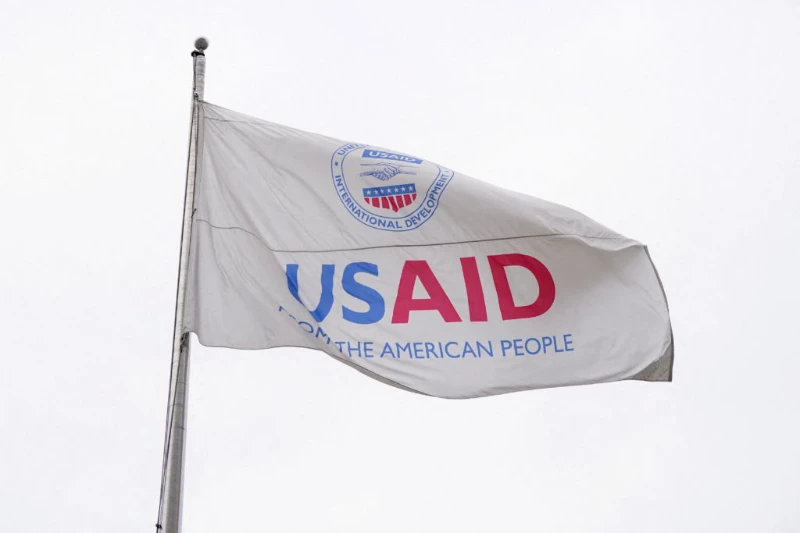"Foreign Influence or Economic Growth?" Swiss National Bank's Investment in Trump Media Raises Ethical Concerns
the implications of foreign investments in a sitting president's company spark urgent debates over accountability and national security risks
The recent revelation of the Swiss National Bank's investment in Trump Media & Technology Group has sent ripples through political and financial circles, raising significant concerns about foreign influence and conflicts of interest. According to an SEC filing obtained by Citizens for Responsibility and Ethics in Washington (CREW), Switzerland’s central bank purchased nearly two million dollars worth of shares in President Trump's social media company. This unprecedented move marks the first known instance of a foreign government-connected entity investing in a sitting U.S. president's public company.
Trump Media & Technology Group, the parent company of Truth Social, is predominantly owned by President Trump through a trust controlled by his son, Donald Trump Jr. The ownership structure has been under scrutiny since it allows Trump to potentially profit from his presidency while maintaining a degree of separation from direct business decisions. Despite this arrangement, critics argue that such investments could still pose ethical dilemmas.
The Swiss National Bank operates as Switzerland's central bank, responsible for setting monetary policy and issuing currency under the governance of the Swiss constitution and National Bank Act. Its majority public ownership raises questions about accountability when engaging in foreign investments like those involving Trump Media. "Around half the SNB’s share capital is held by cantons and other public authorities," notes its website, highlighting its complex ownership structure.
Never before has a sitting U.S. president profited from a publicly traded company while holding office-a situation fraught with implications for potential foreign influence on American politics. Critics warn that this development makes it easier for foreign entities or wealthy individuals to curry favor with President Trump by boosting his company's bottom line.
CREW has consistently voiced concerns over Trump's business dealings during his presidency, citing potential conflicts of interest and national security threats stemming from international investments like those made by the Swiss National Bank. "This proves our warnings were not empty," CREW stated emphatically.
Financial analysts have also questioned the viability of Trump Media given its relatively low user engagement compared to larger competitors like Twitter or Facebook. Some suggest that its market value may be more reflective of Trump's political leverage than actual business success-a notion further complicated by recent expansions into cryptocurrency platforms such as Bitcoin Plus ETF.
Reactions from various groups have been swift and critical; political analysts express alarm over national security risks associated with these types of foreign investments in ventures tied directly to President Trump’s brand. Watchdog organizations echo these sentiments, emphasizing how such entanglements could undermine democratic principles if left unchecked.
Experts caution that this scenario might set dangerous precedents regarding presidential conduct related to personal finances and international relations moving forward."If not addressed properly," warns one expert,"we risk normalizing behaviors that blur lines between private gain and public service."
The recent stock grants awarded to board members at Trump Media & Technology Group, including Kash Patel and Linda McMahon, have raised eyebrows among governance and ethics experts. These figures are not only influential within the company but are also awaiting confirmation for significant government positions under President Trump's administration. Critics argue that such financial entanglements could compromise their ability to serve impartially in public office.
"Many critics of President Trump say that his complex web of financial stakes in various properties, cryptocurrencies and his social media company could allow him to profit off his presidency and improperly curry favor with business partners who also serve his government." - CNN
This intertwining of corporate interests with governmental roles has sparked a debate about the ethical implications of such arrangements. While it is common for board members to receive stock awards as compensation, the timing and context-given their potential future roles in government-have led some to question whether these actions undermine democratic principles.
On one side of the debate, proponents argue that investments like those from the Swiss National Bank are necessary for economic growth and reflect confidence in American enterprises. They claim that these moves can stimulate innovation and job creation within key sectors.
However, critics see these investments as self-serving actions that prioritize personal gain over national interest. They warn that allowing foreign entities or individuals closely tied to political figures to hold significant stakes in companies associated with sitting presidents could erode public trust in democratic institutions.
The broader implications of this situation extend beyond immediate concerns about conflicts of interest or ethical governance. If left unaddressed, such issues may lead to a decline in public trust towards governmental institutions perceived as being influenced by private financial interests rather than serving the public good.
Ultimately, this controversy underscores the need for transparency and accountability when it comes to financial dealings involving high-ranking officials or entities connected to them. As discussions continue around how best to navigate these complex intersections between politics and business, there is an urgent call for clearer regulations aimed at preventing potential abuses of power.
